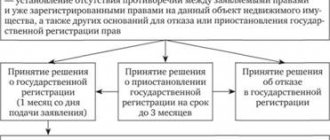Probably every person dreams of having their own living space. Buying a private home or an apartment on the secondary housing market is not a cheap pleasure. A much more economical option is to take part in shared construction or build your own house on land leased from the municipality. But what if the developer delays the procedure for transferring the premises in the case of shared participation, or how to register ownership of the unfinished property on your site when constructing a house yourself? The following article will tell you how to obtain ownership of an unfinished construction project.
"Dacha amnesty"
This term is popularly used to describe the simplified procedure for the privatization of land allocated by municipalities for personal and subsidiary farming, as well as for individual housing construction - individual housing construction. It happens that a started, almost completed construction process has to be interrupted. But the “incomplete” also needs to be formalized properly. Of primary importance in this matter is the basis on which the site is exploited - whether the land is given for indefinite use or for temporary use, or the land under “unfinished” ownership belongs to the landowner. It is also important to take into account the purpose of the land. If we talk about individual housing construction, construction is assumed initially, but if we consider plots allocated for personal subsidiary plots (LPH), then the situation can be ambiguous. In cases where we are talking about private plots within populated areas, such a plot can be classified as a personal plot, which involves the construction of a residential building. But a plot located outside the boundaries of a populated area is characterized as a field plot, which means that it will not be possible to obtain recognition of ownership of an unfinished construction project on it, because in principle it is not intended for the construction of housing. In accordance with Art. 222 of the Civil Code of the Russian Federation, such a structure qualifies as an “unauthorized construction” and is subject to demolition.
How to register ownership of non-residential premises (storage room or parking space) in an unfinished building?
The fact is that the Law of the Russian Federation does not protect owners of non-residential premises , so they automatically fall into the register of creditors. In other words: wait in line for money, which may not come. Such a situation, of course, will not satisfy anyone. But you have the opportunity to remove your premises (storage rooms/parking spaces) from the general mass of what will be sold. Unfortunately, the chances of a successful solution of this type are directly proportional to the degree of readiness of the house in which this room is located.
The procedure for registering a storage room/parking space as property in an unfinished house:
- File a claim in court for recognition of ownership of the non-residential premises that you paid for.
- Wait for a court decision that you, as a shareholder, have a legal right to what you bought.
- Be glad that your object is excluded from the sale mass and is assigned to you.
Important: during the trial, the premises become a conflict , so no one has the right to sell it until the conflict is resolved.
If we talk specifically about the bankruptcy of “ Ekokvartal ” in Mitino-2, then the claim for recognition of ownership of the premises must be filed exclusively in the Krasnogorsk court.
This article shows just one of many examples of legal cases involving DDU; remember that each case is individual. If you want to find out how to solve your particular problem, use the contact form. It's convenient and free.
Registration of unfinished construction
According to Article 130 of the Civil Code of the Russian Federation, real estate means things that are indivisibly connected with land, and it is not possible to move them without collateral damage. An unfinished object with a foundation is regarded as real estate, falling under the criteria of this article. From Art. 25, paragraph 2, of the Law on Registration of Rights to Real Estate, it follows that in order to register ownership of an unfinished property, title documentation for the land and a development permit are required. Before submitting documents to Rosreestr, you will need to take the following steps:
- obtain a construction permit obtained in relation to an unfinished building;
- obtain a technical passport of the object from the BTI;
- obtain a cadastral passport for unfinished construction in accordance with the form approved on January 1, 2015.
Procedure for registering unfinished construction
To register “unfinished” property, you will need a title document and a building permit, when necessary. But if the plot is not registered and not formalized, then according to Article 40 of Law 218-FZ, registration and registration of rights is carried out simultaneously for the house and the plot.
The cadastral engineer of the Pravozem Academy of Sciences enters into an agreement with the owner of an unfinished individual residential building for the production of a technical plan. To start processing documents, you will need a building design, an extract from the Unified State Register or a certificate for a land plot, as well as a building permit. Lawyers of the Pravozem Academy of Sciences, based on the technical plan prepared by the cadastral engineer, will register the unfinished house with the cadastral register and register the ownership. The result of the work will be an extract from the Unified State Register of Real Estate for an unfinished construction project, which will show the percentage that determines how much the house is built. Also, the extract will necessarily indicate the cadastral number of the object and the copyright holder.
Before you start building a house, you should make sure that the site has the appropriate category and the appropriate type of permitted use. For example, the construction of residential buildings on lands allocated for gardening and agricultural production is not permitted. And if registration of an unfinished house is refused, then it will have to be legalized in court. This will require a pre-trial examination, the results of which the cadastral engineer will display in the act, as well as a statement of claim. After a positive court decision, it will be necessary to formulate a technical plan again (with new measurements) and make changes to the Unified State Register.
Stumbling blocks when participating in shared construction
Purchasing housing on the basis of an agreement for participation in shared construction for a number of citizens is the best option compared to purchasing similar living space on the secondary market. Unfortunately, due to the instability of the economy or the unscrupulousness of the developer, an unfinished house often remains a symbol of a housewarming dream. Developers either delay delivery deadlines or completely abdicate responsibility by initiating bankruptcy proceedings. In such cases, the shareholder can either take the situation into his own hands, defending his own interests in accordance with current legislation, or resignedly wait for the other party to the contract to fulfill its obligations.
Important! It is possible to formalize your rights to a share of real estate only by applying to a judicial authority.
Choosing a method to protect ownership of a shared construction project.
My recent publication was devoted to claims for recognition of ownership of real estate. The publication discussed the rule contained in Art. 8.1. Civil Code and the rule explaining it, set out in paragraph 59 of the Resolution of the Plenum of the Supreme Court of the Russian Federation No. 10, Plenum of the Supreme Arbitration Court of the Russian Federation No. 22 of 04/29/2010 (as amended on 06/23/2015) “On some issues arising in judicial practice when resolving disputes, related to the protection of property rights and other real rights”: Unless otherwise provided by law, a claim for recognition of a right is subject to satisfaction if the plaintiff presents evidence of the emergence of the corresponding right. A claim for recognition of rights filed by persons whose rights and transactions in relation to the disputed property have never been registered may be satisfied in cases where the rights to the disputed property arose before the entry into force of the Registration Law and were not registered in accordance with paragraph 1 and 2 tbsp. 6 of the said Law, or arose regardless of their registration in accordance with paragraph 2 of Art. 8 Civil Code of the Russian Federation. Let me remind you of the conclusion:
A claim for recognition of ownership of a real estate property can be filed only in the case where the emergence of ownership rights is permitted by law before its registration, and such grounds have arisen, or they were not previously subject to registration at all. The dispute about the presence or absence of a proprietary right to such an object, in essence, comes down to a dispute about the correctness of the entry in the Unified State Register. And this one:
For the reasons stated above, demands for recognition of ownership rights should be regarded as an error in the choice of the method of protecting the right; the buyer’s claims against the seller under the executed sales contract, and even in cases where the contract is executed in terms of transfer of the object and its payment, but the seller avoids registering the transfer of rights property. In this regard, the positions set out in clauses 14 and 17 of the “Review of the practice of resolving disputes arising in connection with the participation of citizens in shared-equity construction of apartment buildings and other real estate objects” (approved by the Presidium of the Supreme Court of the Russian Federation on December 4, 2013) (as amended) become interesting. dated 03/04/2015). (hereinafter referred to as Review):
14. If the developer evades the conclusion of the main agreement for participation in shared construction and the fulfillment of obligations to put into operation an apartment building that has actually been completed, the plaintiff, whose funds were raised for the construction of the house, has the right to recognition of ownership of the apartment.
Advertisement We see that the position of the Supreme Court boils down to the fact that a claim for recognition of ownership of a property can be satisfied even if there is no state registration of the transfer of rights.
Having compared the two stated rules, applying the rules of Art. 8.1. The Civil Code, indicating under what conditions a claim for recognition of property rights can be satisfied, we come to the conclusion that the speech in paragraph 14 and in paragraph 17 of the above Review is precisely about an exception to the principle of introduction, i.e. This is exactly the case when the right of ownership, by virtue of a separate indication of the law, arises regardless of state registration.
Let's look at the rationale for this position in the Review.
Thus, in paragraph 14 of the Review, the Supreme Court refers to the provisions of Art. 130 and art. 218 of the Civil Code of the Russian Federation, i.e. on general provisions on real estate as an object of law and general grounds on the emergence of property rights, which do not contain any exceptions from the principle of entry, allowing the recognition of rights to real estate in the absence of the fact of their state registration. The court, motivating the decision, came to the conclusion that, I quote: “according to the technical characteristics, the disputed premises are an apartment in a multi-apartment residential building, the defendant does not fulfill the obligation to put the house into operation and avoids concluding the main agreement, thereby violating the plaintiff’s rights to apartment." Thus, the Supreme Court points out the possibility of recognizing a right due to a violation of the obligations between the parties.
In paragraph 17 of the Review, where we are talking about “recognition of ownership of a share in the right to common shared ownership of an unfinished construction project in the form of an apartment,” the Supreme Court, justifying the possibility of satisfying such a claim, refers to the provisions of the same article. 130, 218 Civil Code, as well as Art. 12, 309, 310 Civil Code and Art. 3 GPC. At the same time, the Supreme Court, upholding the decision of the Nikulinsky District Court of Moscow, which recognized the right to an invested share of residential premises in the form of an apartment with the specified characteristics, rejects the conclusions of the appellate court about the impossibility of recognizing such a right for the investor, which indicated that the plaintiff’s property right as a co-investor for real estate created as a result of an investment agreement cannot arise before the distribution of shares between the participants in the investment project. Fulfillment by a co-investor of obligations to finance the investor, according to the Moscow City Court, only entails the emergence of the right to demand from the investor the transfer of an individually determined part in the investment object that is his property.
At the same time, agreeing with the decision of the court of first instance, the Supreme Court indicated that the court correctly proceeded from the fact that, having signed an agreement with the defendant on the intention to conclude an agreement for the sale and purchase of an apartment in the future and fully fulfilling its terms, by virtue of Art. 7 of the RSFSR Law of June 26, 1991 N 1488-1 “On investment activities in the RSFSR”, Art. 4,6,8 Federal Law of February 25, 1999 N 39-FZ “On investment activities in the Russian Federation, carried out in the form of capital investments” and Art. 5 of the Law of the Russian Federation “On the Protection of Consumer Rights” became the person who should own the right of ownership to a share in the common shared ownership of an unfinished construction project in the form of an apartment.
It should be said that the reference to the provisions of these laws is not accidental. For a long time there was a point of view that the provisions of paragraph 5 of Art. 5 Law of the RSFSR dated June 26, 1991 N 1488-1 “On investment activities in the RSFSR”, para. Art. 6 Federal Law of February 25, 1999 N 39-FZ “On investment activity in the Russian Federation, carried out in the form of capital investments”, namely that investors have the right to “own, use and dispose of capital investment objects and the results of capital investments made “ should be interpreted as the emergence of property rights due to the triad of powers of property rights contained in the norm (clause 1 of Article 209 of the Civil Code).
However, this approach was subsequently rejected by the legal position contained in the Resolution of the Plenum of the Supreme Arbitration Court of the Russian Federation dated July 11, 2011 No. 54 “On some issues of resolving disputes arising from contracts regarding real estate that will be created in the future” (hereinafter referred to as the Resolution No. 54). So the court in paragraph 2 of paragraph 4 of the Resolution stated the following:
Unless otherwise established, courts should evaluate contracts related to investment activities in the field of financing the construction or reconstruction of real estate as contracts for the sale and purchase of future immovable property. In this case, the courts must take into account that the provisions of the legislation on investments (in particular, Article 5 of the Law of the RSFSR “On investment activity in the RSFSR”, Article 6 of the Federal Law “On investment activity in the Russian Federation, carried out in the form of capital investments”) cannot be interpreted in the sense of vesting persons who finance the construction of real estate with the right of ownership (including shared ownership) of the real estate being built at their expense.
The right of ownership to real estate objects arises from persons who have entered into a contract for the sale and purchase of future real estate (including cases where such agreements are subject to legislation on investment activities), according to the rules of paragraph 2 of Art. 223 of the Civil Code of the Russian Federation, that is, from the moment of state registration in the Unified State Register, this right belongs to the buyer. In this case, the explanations contained in this Resolution 54 (with the exception of the second paragraph of paragraph 4) are not subject to application when considering disputes related to the creation of real estate under the Law on Shared Participation in Construction. Which means, to put it in other words, that it is impossible to recognize a citizen’s ownership rights to an investment object before state registration of the transfer of ownership.
In two governing acts of the highest courts we see two diametrically opposed approaches to resolving the same type of dispute about the recognition of ownership of a real estate object: the investor’s ownership of the investment object in a claim for recognition cannot be recognized until state registration of the transfer of ownership, and the investor’s ownership of the object investments can be recognized in a claim for recognition of rights and before the state registration of the transfer of rights and even before the state completed construction of the object.
Which approach is correct or preferable? What distinguishes these two approaches doctrinally?
It seems that the doctrinally correct approach is set out in Resolution 54, which consistently confirms the rules set out in clause 8.1. Civil Code, as well as the provisions of the Resolution of the joint Plenum of the Supreme Arbitration Court and the Supreme Court No. 10/22.
Any contradictions are excluded if you answer the question about the moment and subject of the emergence of the right of ownership of the object being built on the land plot. From the general rule about the common fate of a land plot and an object being built on it, it follows that the owner of an object built on a land plot becomes the developer of this object (in this case, we start from the fact that a DDU agreement has been concluded between the investor and the developer, and the developer must have the right to land plot). An analysis of the provisions “On participation in shared-equity construction leaves no doubt about this (see, for example, Article 2, Article 8, Article 13 of the said Law).
On the contrary, the position of the Supreme Court in the commented Review is based rather on the desire, without filling the gap in legislation, to eliminate the element of social tension in such a sensitive sector of civil legal relations (see, for example, Determination of the Supreme Court of the Russian Federation dated February 24, 2015 N 305-ES14-1186 in case N A40-80775/2013, where the Supreme Court refers to the principle of equality of participants in the turnover, explaining this by the fact that before the consideration of this case, other courts satisfied similar claims on similar grounds with reference to the Review).
Undoubtedly, the motives for protecting an unprofessional participant in the turnover deserve attention, but, in turn, such regulation creates other difficulties, which always arise acutely at the stage of bankruptcy. Thus, it will be difficult to answer the question about the legal position of the owner in the common shared ownership of an unfinished object in bankruptcy proceedings: his, the investor’s, legal position, the possible fate of the object collides with the interests of creditors who, for some reason, did not receive such a right.
Does the owner of the share become obligated to the creditors, are he assigned the corresponding financial obligations if a decision is made to complete the construction of an unfinished construction project, etc.
Practicing lawyers, depending on which side they have to act on: the developer or the investor, will, of course, be able to use any of the approaches outlined above, but such diversity of practice does not work for the benefit of turnover.
Recently, in connection with the reform of the Civil Code, many publications have appeared in the media on issues of real estate, the registration system, real rights and ownership of real estate.
For those who are interested, I can recommend the publications, firstly, of Sukhanov E.A., Vitryansky V.V., as well as Bevzenko R.S., who is very well versed in real estate issues, M. Tserkovnikov, M. Erokhina.
Appeal to the court
Before preparing a claim for recognition of ownership of an unfinished construction project, the shareholder must consider the following:
- Jurisdiction. Jurisdiction is determined in accordance with Art. 30 of the Code of Civil Procedure of the Russian Federation, based on the location of the object itself. For legal entities, the place of appeal will be the territorial body of the Arbitration Court; individuals send a statement of claim to the District or City Court.
- Readiness. Recognition of the right to an unfinished construction project is possible only in cases where the construction process is completed and all that remains is to put the building into operation, or the construction is “frozen” at the final stages. However, there is no basis for going to court in cases where the developer violated the terms of construction at the initial stages. There is a possibility that the court will satisfy the plaintiff’s claims if the facility is more than 75% ready, but it is not great. But the likelihood of receiving a positive decision from the judicial authorities for the plaintiff if the building is more than 90% complete is many times higher, but it must be taken into account that it is the applicant who will have to confirm the declared readiness by providing evidence.
- Subject of the claim. The most common mistake made by shareholders, due to which claims may be rejected, is the incorrect formulation of the claims themselves, for example, about recognition of rights to an apartment, garage, etc. According to the concluded share participation agreement, the shareholder has the right to claim a share; accordingly, the claim must include a requirement to recognize the ownership of the share of the unfinished property indicated in the existing agreement. An unfinished house does not qualify as full-fledged residential real estate, therefore, the use of terms related to residential real estate will be considered erroneous. Therefore, the claim should indicate only the demand for the share corresponding to the share participation agreement, and the reliability of accurate information about the size and area will be one of the key ones for the court.
- Execution of obligations. Going to court itself is possible only subject to full fulfillment of contractual obligations to the defendant regarding financing issues. For example, such a clause in the contract as the need to pay the difference between the cost of the future apartment according to the design documentation and the actual footage after technical inventory may become a reason for rejecting the plaintiff’s claims.
Conditions for recognizing ownership rights of an unfinished object
As noted, in order to obtain rights to property, it is necessary to file a claim and prove the position in court. Until the apartment building is completed, equity holders cannot count on registering the property. This means that the application is submitted taking into account the available share. The plaintiff expects that the judge will understand the issue and approve the request for registration of the unfinished object.
By law, the application must be granted if the house is 90% complete or more. In more rare cases, representatives of Themis make a positive decision if the building is 75% complete. Registration of real estate is possible only if the agreement on the allocation of a share is clearly valid. The applicants, as a rule, are shareholders who are trying to protect their rights.
If the degree of completion of the object is less than 75%, you can go to court. In this case, it is possible not to recognize ownership, but to demand punishment for the construction organization. The plaintiff demands to find out why the developer does not fulfill his obligations and demands that the culprit be punished.
In the first case, a positive court decision plays the role of a transfer deed. Having such a document in hand, you can contact the authorized body and register the property according to all the rules. When it comes to punishing the developer, the only thing you can count on is receiving a penalty.
Documents for registration of unfinished house construction
To complete the registration procedure as quickly as possible, you should take the package of documents seriously. In order to register a residential building, you must have the following documents:
- building permit;
- statement;
- cadastral passport for the object;
- receipt of payment of state duty;
- power of attorney certified by a notary (if the applicant is a third party);
- document establishing the right to land.
A cadastral passport for the land itself is not needed if all rights to it were previously registered. All documents can be submitted in person, through third parties or by mail.








